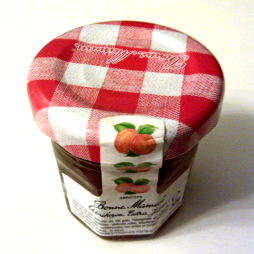
Don't make jam of your portfolio
A friend once told me a story of an experiment conducted in a supermarket. In two different time periods the supermarket offered two kinds of portfolios of jam. In the first setup the shop offered a number of shelves with numerous kinds of jam. Different fruits, different pot sizes and different brands. Many choices. In the second setup the supermarket offered a single large shelf of strawberry jam of brand x in one standard pot size. One choice. What was the result? Contrary to expectations, more jam was sold in the single strawberry jam setup.
Why? Because people hate complicated choices. The problem is in weighing the different choices. Do I feel like having strawberry jam, or blackberry jam? Or maybe cherry jam? Which brand did I have last time? Was it good? Should I try another brand this time? Will I finish the big pot on time? Or should I but the smaller one, which is relatively more expensive? Why is the exotic jam not available in a large pot?
Tension between emotional and rational choices
Choice is difficult. Especially if a choice reduces the freedom of choice of the other to-be-made choices. When people plan to spend their money, they want to spend it well. And a choice made during the decision making process should not cause any downside. Let’s consider buying a laptop and assume the following product offer by brand A:
| Fast | Super fast | Ultra fast | |
| Black | $800 | $1000 | $1200 |
| Red | $800 | $1000 | n/a |
| Blue | $800 | n/a | n/a |
| Pink | n/a | $1000 | $1200 |
If you particularly like blue, you’re probably disappointed that the faster models are not available in that color. Especially if you particularly don’t like pink or boring black. You might altogether not buy a laptop of brand A. And if you happen to like pink, but have a limited budget to spend, you would also be dissappointed to at least some degree.
Now let’s consider brand B.
| Fast | Super fast | Ultra fast | |
| Black | $800 | $1000 | $1200 |
If you would stumble upon brand B before being disappointed by brand A, you might not even consider to prefer blue or pink over black. It would be easy to make a choice that fits your budget.
The examples above illustrate that choice could act as a detractor. By creating a tension between a rational choice (speed or budget) and a more emotional choice (color), brand A causes choice to be a detractor.
Too much rational choice
Even preventing any limitation to choice can cause detraction. Consider buying a laptop and having to choose speed, memory, screen size, connectivity, hard disk size, warranty, etc. All available in all possible combinations. All these choices form a multidimensional cube in which one corner represents the cheapest combination of choices and the opposite corner represents the most expensive product. Each choice increasing the price. For most people weighing all choices is not something they want to spend time or effort on. Then consider brand C, which took the effort to make these choices for the customer:
| Fast | Super fast | Ultra fast | |
| Decent hard drive | $800 | n/a | n/a |
| Large hard drive | n/a | $1000 | n/a |
| Huge hard drive | n/a | n/a | $1200 |
A small but smart portfolio can help consumers by making it easier for them to choose what to buy. And if a choice is easy to deal with by a consumer, the consumer will be happy. And that’s the goal, right?
Too much emotional choice?
Is it possible to introduce too much emotional choice? If the choices are not conflicting, there shouldn’t be any problem. As long as the portfolio matrix does not contain holes, and emotional choice does not conflict with a rational one like price, making the emotional choice could even be fun. It’s like shopping for clothes, but then with all sizes available and all brands equally cheap. If you happen to like shopping for clothes…
For a less theoretical and more observative article on choice, see the Economist.
Added 14-2-2011:
Very similar to the examples given above, Nokia is facing real portfolio problems. Where Nokia leaves choosing to the consumer, Apple makes the best choice for you.
Sheena Iyengar explains more about choice as a possible detractor in this TED talk.